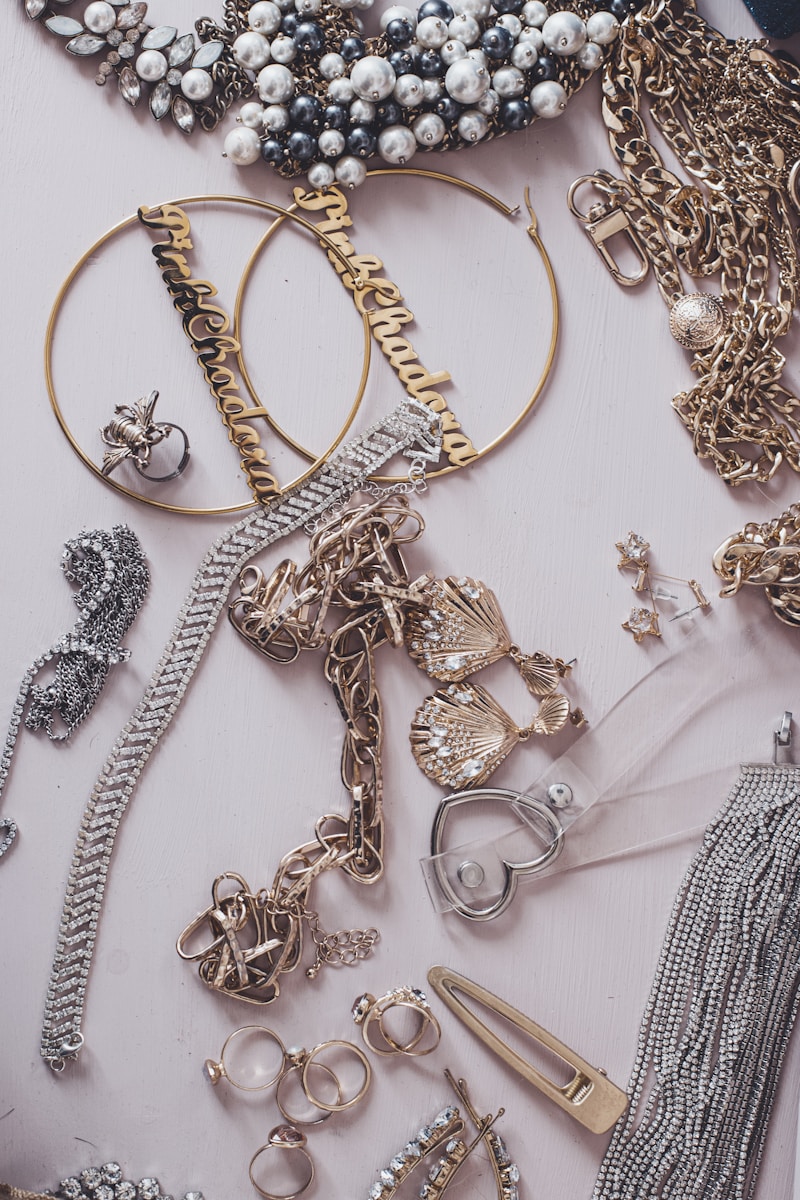How to Coordinate Accessories with Your Dress: A Comprehensive Guide
Understanding the Importance of Accessory Coordination
When it comes to fashion, the outfit you wear isn’t complete without the right accessories. Properly coordinating accessories with your dress can elevate your look and reflect your personal style. This guide will explore various considerations, tips, and techniques on how to coordinate accessories effectively.
The Role of Accessories in Fashion
Accessories serve as the finishing touch to your outfit. They can express individuality, add character, and even transform a simple dress into a statement piece. Whether it’s jewelry, bags, belts, or shoes, the right accessories can enhance your overall appearance and convey the right message about your style.
Choosing the Right Accessories for Your Dress
To calculate the perfect accessory pairings, consider the following factors:
- Your Dress Style: The type of dress you’re wearing is a substantial factor in determining what accessories to choose. For example, a formal evening gown pairs well with elegant jewelry, while a summer sundress can be accessorized with playful, colorful pieces.
- Color Coordination: Color harmony is crucial. Aim for a balance between complementary and contrasting colors. Using a color wheel can be beneficial here. Look for colors that are opposite each other for contrast, or stick to similar hues for a more subdued appearance.
- Occasion: Consider the event you're attending. A casual brunch requires different accessories compared to a formal wedding. Always tailor your accessories to fit the formality of the event.
Types of Accessories to Consider
| Accessory Type | Best Used With | Examples |
| Jewelry | Formal / Semi-Formal Dresses | Necklaces, Earrings, Bracelets |
| Bags | All Dresses | Clutches, Crossbody Bags, Totes |
| Shoes | Everyday / Formal Dresses | Heels, Flats, Sandals |
| Belts | Casual / Shift Dresses | Waist Belts, Fashion Belts |
Color Coordination Techniques
Here are a few effective techniques for color coordination:
- Monochromatic: Wearing accessories in varying shades of the same color creates a sophisticated, cohesive look.
- Analogous Colors: Choose accessories in colors adjacent to your dress color on the color wheel, which creates harmony.
- Contrasting Colors: Using accessories in colors that are opposite your dress color may create a bold statement.
Textures and Materials Matter
The texture and material of your accessories can also impact how well they coordinate with your dress. Mixing textures can often add depth to your outfit. For example, pair a lace dress with leather accessories for an interesting contrast. Alternatively, wearing accessories made from the same material as your dress can create an elegant, seamless look.
Accessorizing for Different Dress Types
Each dress type has its own accessory requirements. Here are a few examples:
A-Line Dresses
A-line dresses are versatile and can be paired with a range of accessories. Consider statement jewelry to accentuate the neckline and a structured bag for balance.
Maxi Dresses
Maxi dresses often have a relaxed fit, making them perfect companions for boho-inspired accessories like layered necklaces or oversized bags. Utilize flat sandals to keep it casual.
Bodycon Dresses
For bodycon dresses, sleek accessories work best. Opt for minimalistic jewelry, a clutch, and heel styles that elongate your silhouette. This creates a streamlined appearance.
Personal Style and Trends
Your personal style will dictate your choice of accessories. Don’t be afraid to incorporate trendy pieces, but remember to balance them with classic elements to ensure your look remains timeless. Mixing vintage and modern accessories can also give your outfit a unique touch.
Accessorizing Tips for Specific Occasions
Weddings
When attending a wedding, always lean towards elegant and understated accessories. A clutch, delicate jewelry, and sophisticated heels can help maintain the formality of the occasion. It’s also wise to consider the wedding’s color scheme when choosing your accessories.
Casual Outings
For casual outings, playful and unique accessories can showcase your personality. Think colorful bags, chunky jewelry, or fun hats that complement your dress without overshadowing it.
Business Events
Professional settings demand polished accessories. Simple, understated jewelry, structured bags, and classic shoes will help convey proficiency without being overly flashy. Always be mindful of the company culture in your accessory choices.
Practical Considerations
While aesthetics are important, practicality also plays a role in accessory choice. Consider:
- Comfort: Ensure your accessories are comfortable to wear, especially for prolonged periods. It’s important not to let beautiful jewelry distract you from enjoying your occasion.
- Functionality: If you need to carry items, your bag should be both stylish and functional. Be mindful of how much space you require for necessities.
- Seasonality: Some materials are more suited for certain weather conditions. For example, lighter fabrics and brighter colors work well in spring and summer, while darker colors and heavier materials are typical for fall and winter.
Final Thoughts on Accessory Coordination
Coordinating accessories with your dress is an essential skill that can help you effortlessly switch between various looks while showcasing your personal style. Remember to consider the type of dress, color harmony, textures, and the occasion when making accessory choices. Always ensure your accessories highlight and complement your outfit rather than competing for attention. With these tips, you’ll be able to coordinate accessories with confidence, making your outfits truly pop.

In conclusion, mastering how to coordinate accessories with your dress involves practice and a keen understanding of your personal style. Pay attention to trends but always prioritize what feels right for you. This balance will enable you to create stunning looks that leave a lasting impression.